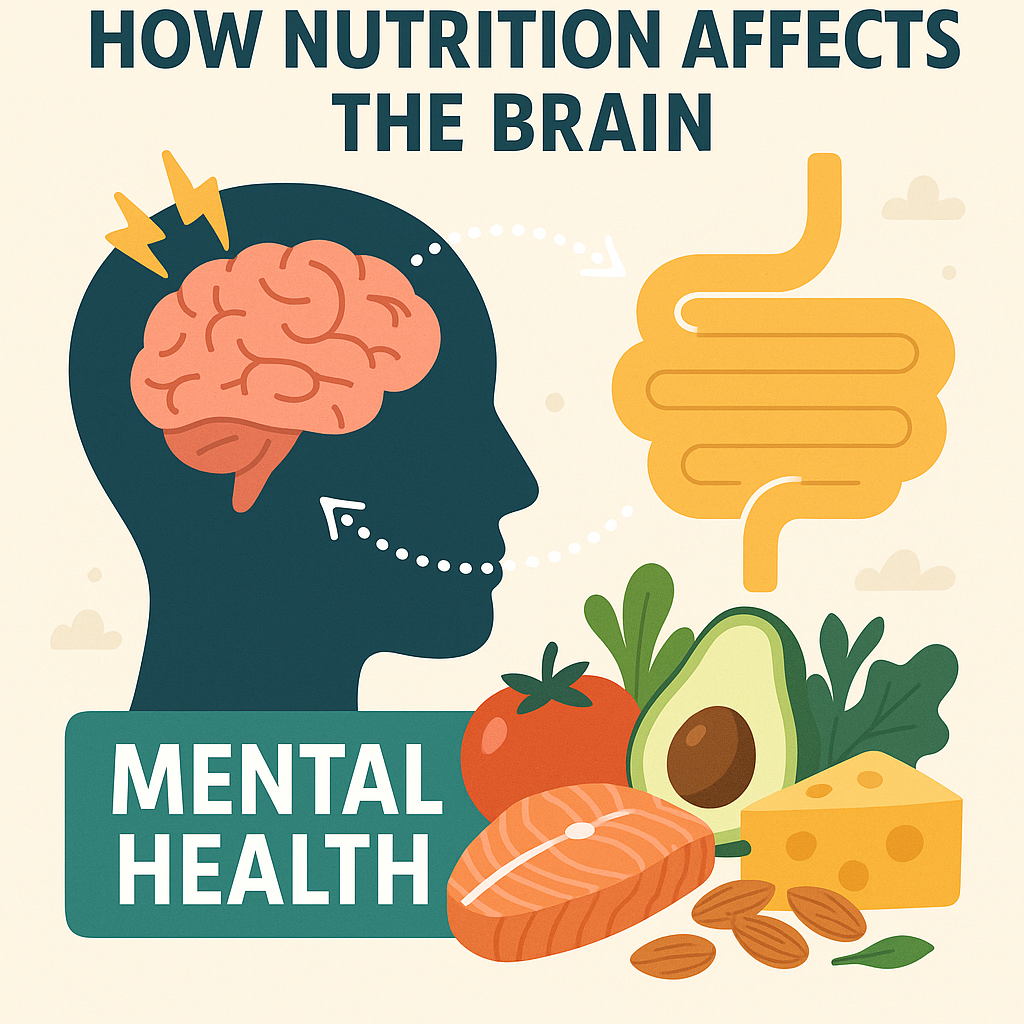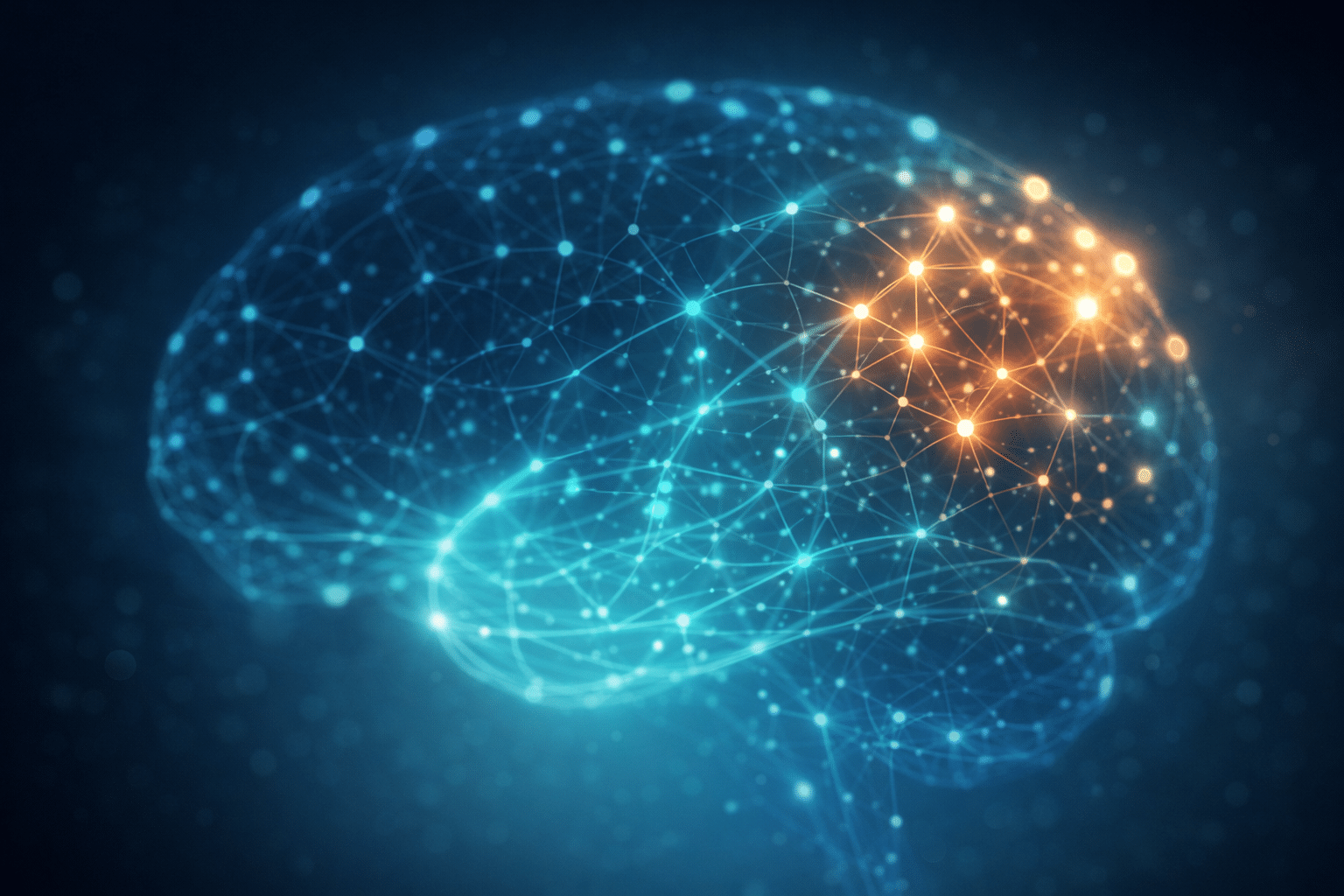You grab a donut or a soda mid-afternoon. The sugar rush feels great for about twenty minutes. Then the crash sets in, your focus fades, and your mood sinks. Compare that to how you feel after a balanced meal with protein, greens, and whole grains. Energy lasts longer. You stay more alert. That difference isn’t in your imagination. Food really does talk to your brain.
Nutritional psychiatry studies the connection between what we eat and how we think, feel, and handle stress. This article takes a closer look at how nutrition affects the brain and gives you a guide to foods that support mental health and the ones that tend to drag it down.
The Science of Nutritional Psychiatry
Your gut and brain are in constant conversation. Scientists call it the gut-brain axis, but the idea is simple: What you eat affects gut bacteria, and those microbes send signals back to the brain. Fiber from beans or oats, for example, helps good bacteria produce short-chain fatty acids. Those compounds are linked with calmer moods and sharper thinking.
Food also plays a direct role in neurotransmitters. Serotonin, the “feel-good” chemical, relies on nutrients like tryptophan and B vitamins. Dopamine, tied to motivation and focus, has the same story. If the diet comes up short, neurotransmitter levels can drop, and so can mood.
Then there’s inflammation. Diets packed with sugary drinks and fried foods trigger low-grade inflammation throughout the body, including the brain. Over time, that inflammation is linked with depression and memory problems.
Diets centered on whole foods, antioxidants, and healthy fats do the opposite. They calm inflammation and protect brain cells. This is why nutrition psychology matters. It gives us tools we can use day to day.
Essential Nutrients for Mental Health
Not all nutrients carry equal weight for the brain. A few stand out, and adding them regularly makes a measurable difference.
Omega-3 Fatty Acids
Salmon, sardines, chia seeds, and walnuts are full of omega-3s. They keep brain cell membranes flexible and calm inflammation. Researchers reviewing dozens of trials found omega-3 supplements, especially around 1.5 grams daily, were tied to improved mood and higher remission rates in people with depression. For most, eating fish once or twice a week is the easiest way to cover that base.
B Vitamins
B6, folate, and B12 vitamins drive the production of neurotransmitters and help turn food into usable energy. When people run low, symptoms like fatigue and low mood show up. Leafy greens, beans, eggs, and whole grains are reliable sources. Adding just one or two servings of these foods daily helps fill gaps.
Magnesium
Magnesium calms overactive nerves, supports sleep, and even helps muscles release tension. Nuts, seeds, and dark chocolate are good sources. Low magnesium intake has been linked with a higher risk of sleep problems and sleep disorders, which can add to the strain on mental health.
Zinc and Selenium
Needed in small amounts, but still powerful, zinc supports mood regulation, and selenium acts as an antioxidant protecting brain cells. Pumpkin seeds, oysters, and Brazil nuts provide more than enough. Even a handful once or twice a week can do the trick.
Foods to Embrace: Your Mental Health Shopping List
The strongest evidence points toward simple, familiar foods. They fit naturally into the Mediterranean and MIND diets, both shown to protect brain health.
Leafy Greens
Spinach, kale, and collards are loaded with vitamins and folate. People who eat them daily show slower cognitive decline over time. In one analysis, those with the highest intake of leafy greens had memory scores equal to those of people eleven years younger.
Fatty Fish
Omega-3s in fish are unmatched. Regular fish eaters show lower risks of depression and dementia. A weekly salmon dinner or even canned sardines can cover this nutrient gap.
Fermented Foods
Yogurt, kefir, kimchi, and sauerkraut are all sources of probiotics. Probiotics assist in restoring balance to the gut microbiome, which is linked to regulating mood and anxiety. People who consume fermented foods regularly often report lower levels of stress and better digestive health.
Berries and Nuts
Blueberries, strawberries, walnuts, and almonds deliver antioxidants. They fight oxidative stress, a process that slowly damages cells, including neurons. Berry-rich diets are tied to better memory and attention in older adults.
Whole Grains
Brown rice, quinoa, oats, and barley release glucose slowly, giving the brain a steady energy supply. They’re also high in fiber, which strengthens the gut-brain connection and supports restful sleep.
Foods to Limit: Dietary Downers for Your Mood
Just as some foods build resilience, others make it harder for the brain to function well.
Refined Sugars and Carbs
Soda, pastries, and white bread give a quick high, then a steep crash. That cycle leaves people tired and irritable. The U.S. Dietary Guidelines recommend keeping added sugar under 10 percent of daily calories. For someone on 2,000 calories a day, that’s about 50 grams, or roughly one can of soda.
Highly Processed Foods
Here’s where the data gets hard to ignore. In 2023, researchers tracked more than 31,000 American women. Those who ate the most ultra-processed foods were significantly more likely to develop depression. The effect was strongest for artificially sweetened drinks. Harvard Health reviewed the study and urged people to focus on whole-food patterns.
Trans Fats
Though less common now, trans fats still pop up in some fried and packaged snacks. They can damage brain cell membranes and drive inflammation. Even small amounts are harmful long-term, so the safer move is to avoid them completely.
Your Plate Is a Powerful Tool
The connection between mental health and nutrition isn’t fringe anymore. Studies keep showing that what you eat can change how you feel, think, and cope day to day.
Swapping fish for fried food or grabbing berries instead of candy may look minor, but over time, those choices matter. You don’t need a perfect diet to see results. Small, steady steps are enough. That’s really the heart of nutrition psychology: food as daily self-care.
At Zeam, we treat meals as part of healing. If you are curious about nutrition and mental health support in Sacramento, Folsom, or Roseville, reach out. We will help you build habits that strengthen both brain and body.
Key Takeaways with Citations
- Nutrition plays a direct role in mood and cognition. The gut-brain axis links diet with neurotransmitters, inflammation, and mental health outcomes【PMC11538121†source】.
- Omega-3 fatty acids support depression recovery. A systematic review found supplementation around 1.5 g/day improved mood and remission rates【Cambridge†source】.
- B vitamins and magnesium are critical. Deficiencies are tied to fatigue, low mood, and sleep disturbances【PMC5772164†source】【PubMed†source】.
- Ultra-processed foods raise depression risk. A large cohort study of 31,000+ adults showed high intake of ultra-processed foods was strongly linked to increased depression risk, particularly from artificially sweetened drinks【JAMA Network†source】.
- Simple dietary swaps improve resilience. Diets rich in leafy greens, fatty fish, whole grains, berries, and fermented foods are associated with better memory, lower anxiety, and stronger cognitive health【PMC10058108†source】【ODPHP†source】.




